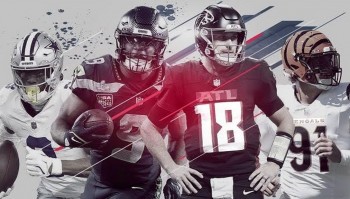How To Check and Pay The Traffic Fine Tickets Online In The UK
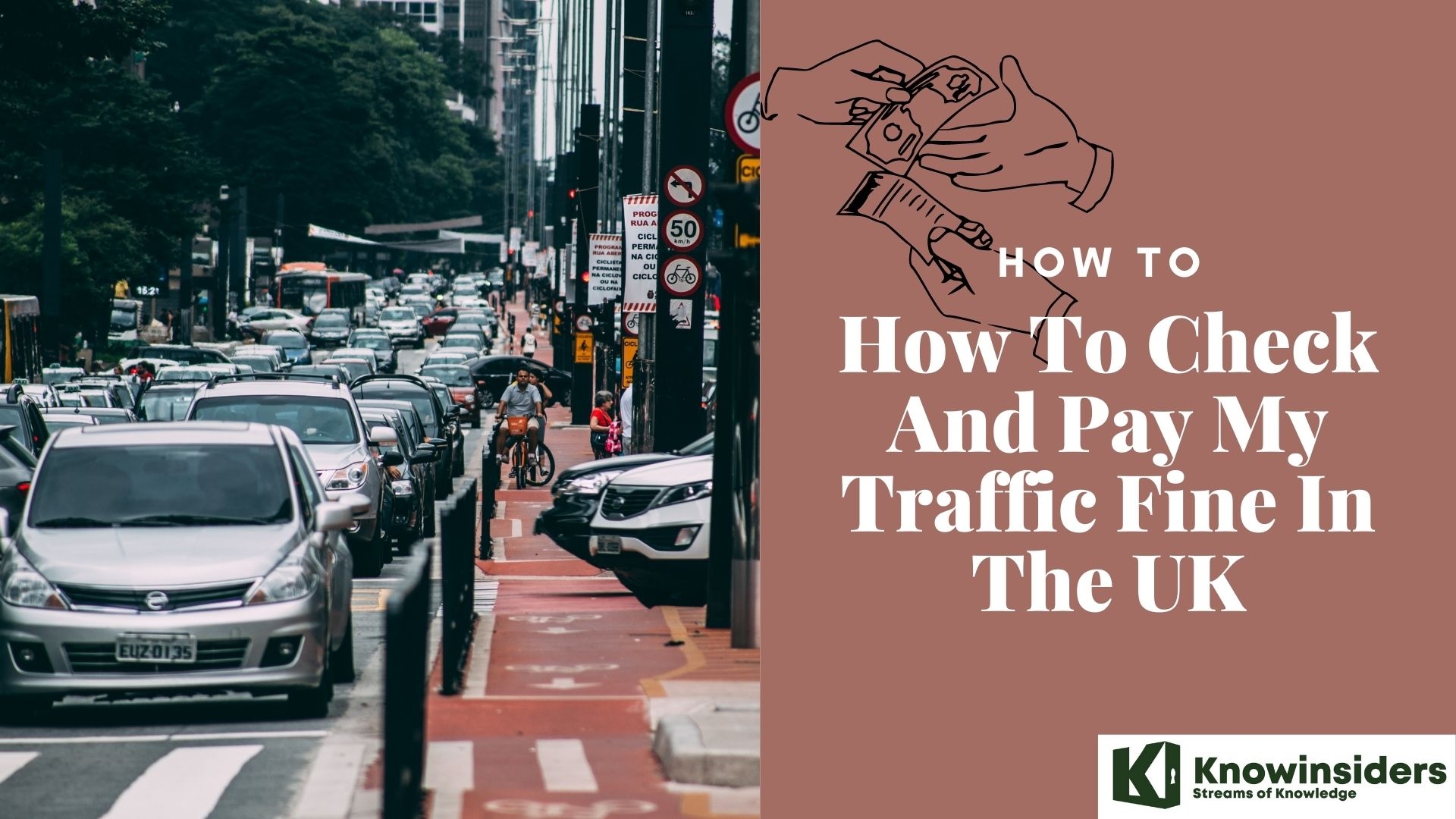 |
| How To Check And Pay My Traffic Fine In The UK |
| Table Content |
There was a time when fixed and average speed cameras didn’t exist, and the most likely way of accruing endorsements (now better known as penalty points) on your licence was to miss seeing the local policeman pointing a ‘speed gun’ at your car as you edged above the posted limit. Those days have long since passed, and the rise in digital technology now means that drivers are faced with a plethora of different roadside devices.
If you live in the United Kingdom, it is important to know the traffic rules and fine just in case you get caught and have to pay the tickets. Take a look at the guide in the article below on how to check and pay your traffic fine.
How to check for your traffic fine ticket online in the UK
If you have passed a speed camera that has flashed, the only way you will know for certain that you have been caught is when the registered keeper of the vehicle receives a Note of Intended Prosecution (NIP). This will arrive within 14 days of the offence taking place and will explain what happens next. This 14-day rule is in place so that companies, such as vehicle lease firms and car hire firms, can determine who was driving the vehicle at the time of the offence.
If you are the one that was caught speeding, then you will face a minimum fine of £100 and three points on your licence. If your driving licence is clean, then you may be offered the option of taking a speed awareness course instead of the penalty points.
As of 2017, the maximum fine for a speeding offence is up to £2,500 on the motorway. The amount you pay and the number of points you could face will depend on how much you were exceeding the speed limit by, as well as your level of income.
Want to view your driving licence record? Well, you can check your own penalty points online through the Government Gateway portal. To check your records, you’ll need your NI number, driving licence number, and the postcode on your licence.
Driving in the United Kingdom: What you need to know
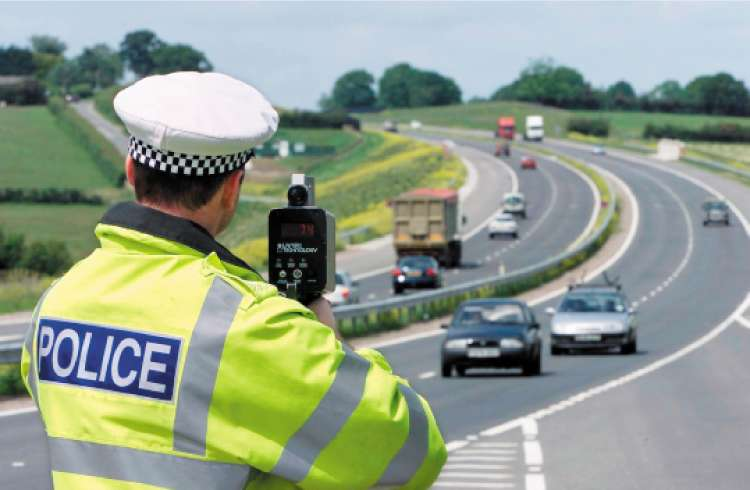 |
| Photo: The Independent UK |
Driving in the United Kingdom is governed by various legal powers and in some cases is subject to the passing of a driving test. The government produces a Highway Code that details the requirements for all road users, including drivers. Unlike most other countries in the world, UK traffic drives on the left.
Speed limits
British roads are limited for most vehicles by the National Speed Limit. Road signs in the UK use imperial units, so speed limits are posted in miles per hour. Speed limits are the maximum speed at which certain drivers may legally drive on a road rather than a defined appropriate speed, and in some cases the nature of a road may dictate that one should drive significantly more slowly than the speed limit may allow. This restricts some to a default speed limit of 30 mph on lit roads, and some light vehicles to 60 mph on single carriageways and 70 mph on dual carriageways and motorways, with some large vehicles or some of those towing trailers subject to reduced limits on some roads depending on the class of both road and vehicle. Sections of road subject to the national or in-town speed limit only require limit marker signs at the start of a section, without repeaters, provided street lights are or are not present as appropriate. Lower Speed limits of 20 mph, 30 mph, 40 mph, 50 mph and 60 mph can also used on roads in the UK where it is deemed that the national or 30 mph urban speed limit is inappropriate, with repeater signs posted at regular intervals.
Lane discipline
Drivers on multilane roads are legally required to use the left-most lane unless overtaking other vehicles on the road, unless signs or road markings indicate that the left-most lane(s) is only for traffic leaving at the next junction. Drivers who wish to overtake a slower vehicle are thus expected to move out from their lane (having used the indicator lights to warn other road-users of their intention to do so), pass the slower vehicle and return to the left-most lane. This enables faster traffic to overtake unhindered if it wishes to do so. On the UK's busiest roads, where there may be four or more lanes in each direction, there is often a situation where overtaking becomes continual as each successive lane moves at a slightly faster speed than that to its left.
On some motorways an area is provided on the left hand side referred to as the 'hard shoulder', is should only be used when a vehicle has broken down. It is illegal to drive in this lane unless indicated otherwise, Dynamic Hard Shoulder Running (DHSR) Smart Motorways allow motorists to use the hard shoulder at peak times.
The action of undertaking, where the driver moves to the left of a slower moving vehicle to get past it is, although not illegal, discouraged on motorways under Highway Code 268. This rule allows for undertaking to occur in conditions that cause the left-hand lane to move faster than the right-hand lane and for traffic to keep up with the flow of the lane.
Pedestrian crossings
There are two broad categories of pedestrian crossing to aid the safe passage across major roads by those travelling on foot. There are no laws against jaywalking in the UK.
Traffic Light Controlled Crossings: Traffic is controlled by traffic light signals.
Uncontrolled Crossings: Zebra and Parallel crossings give Pedestrians & cyclists in addition at Parallel crossings priority over traffic. These are marked using Black and white stripes are painted on the road and flashing amber Belisha beacons are on each side of the road. Drivers must give way to pedestrians & cyclists on the crossing.
Driving licence
Driving licences may be obtained by any UK resident over the age of 17, subject to certain conditions. However you can drive a car when you are 16 if you get, or have applied for, the enhanced rate of the mobility component of Personal Independence Payment (PIP). Initially, a provisional licence is issued, which restricts the holder to driving whilst accompanied by a driver who is at least 21 years old, who has held a full licence in the category of vehicle they are supervising the learner driver in for at least three years, and does not allow the provisional licence holder to drive on motorways. From June 2018, provisional licence holders were allowed to drive on a motorway providing that they were with an Approved Driving Instructor in a car with dual-controls. The provisional licence may be exchanged for a full licence after the holder has passed the practical driving test. Upon reaching the age of 70, drivers may apply to have their licences renewed with their doctors' permission.
Many foreign driving licences permit one to drive in the UK, but must be exchanged for British licences after a year. Drivers from the USA, however, must take a British test if they wish to drive in the UK for more than a year after arriving in the country. This is because US driver licensing is carried out by individual states, but the US Constitution does not permit individual states to enter bilateral treaties with other sovereign governments. However driving licences from the European Union, Norway, Iceland, Liechtenstein and Switzerland are valid in the United Kingdom.
Enforcement
Some of the rules of the road should be enforced by the police, others are enforced by council wardens. Speed cameras are common. Red-light and bus lane cameras are also used. Motorists convicted of certain traffic, and certain non-traffic offences may have "points" added to their licences: some traffic offences such as exceeding the speed limit by a small amount, typically warrant three points, and motorists with twelve points face a driving ban, although this is six points for new drivers.
Normally the points for a speeding offence, driving through a red light or in a bus lane will be punished with points from 3-6 whilst driving using a mobile phone is 6.
How much does a speeding ticket cost?
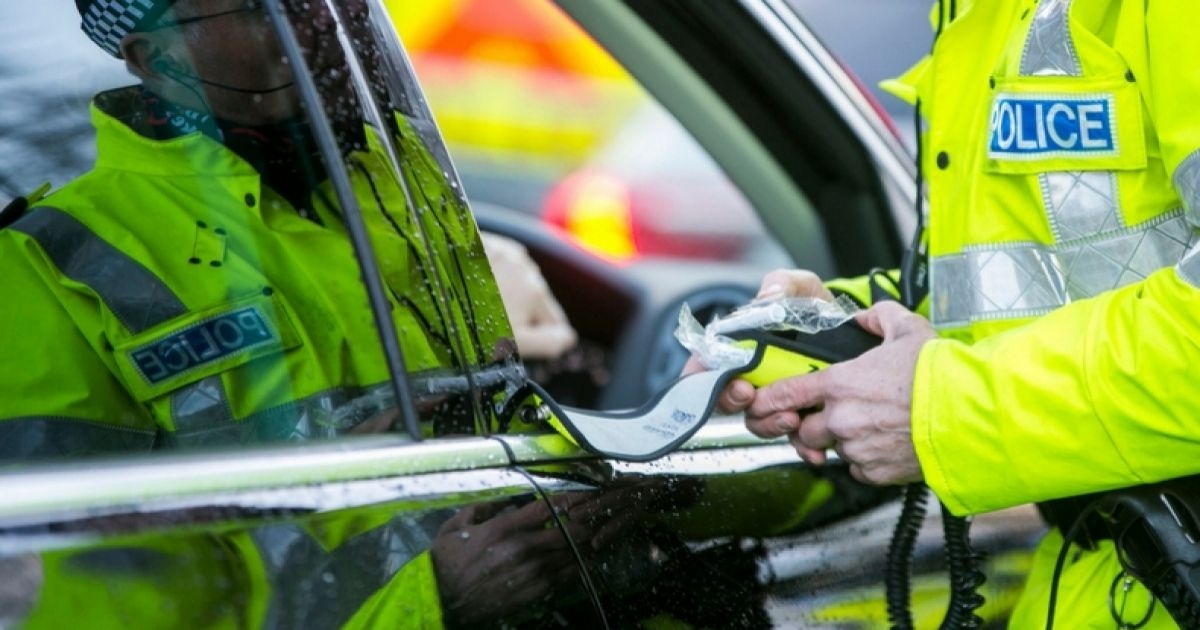 |
| Photo: RAC |
In April 2017, the sentencing structure for drivers prosecuted for speeding was changed, but the laws remained the same. The minimum penalty for speeding remains a £100 fine and three penalty points on your licence.
Penalties at this level are often issued automatically, and you could be offered the opportunity to attend a speed awareness course. The cost will be similar to the fine, but you'll avoid having points added to your driving licence.
The maximum speeding fine that can be imposed by magistrates is £2,500 for speeding on the motorway, but as fines have to take account of personal means, you’d have to be driving very fast and be very rich to cop a punishment at that end of the scale. Of course, magistrates courts use their judgment on any offences in-between and issue speeding fines, licence points and driving bans accordingly.
If you’re a repeat offender, and build up 12 points or more during a three-year period, you are likely to face a period of disqualification from driving too.
Potential reasons for contesting a speeding ticket
A Notice of Intended Prosecution will be issued to the offender in the post automatically after you’ve been snapped by a speed camera. If you’ve been caught by a policeman operating a radar gun, the NIP may be verbal.
How long will a speeding fine take to arrive?
If a postal NIP is issued, it must be delivered to the registered keeper within 14 days of the alleged offence, and the keeper must respond within 28 days with the information requested – even if they are choosing to appeal.
Common legal defences for UK speeding fines
- The NIP has incorrect details about the nature, time, or location of the alleged offence. (Spelling mistakes or typos don’t count.)
- The alleged speeder wasn’t driving when the offence took place – for a variety of reasons.
- The road signage for speed limits was missing or incorrect.
- The speed measuring equipment had not been calibrated or was being misused.
How much will you have to pay for traffic fine in the UK?
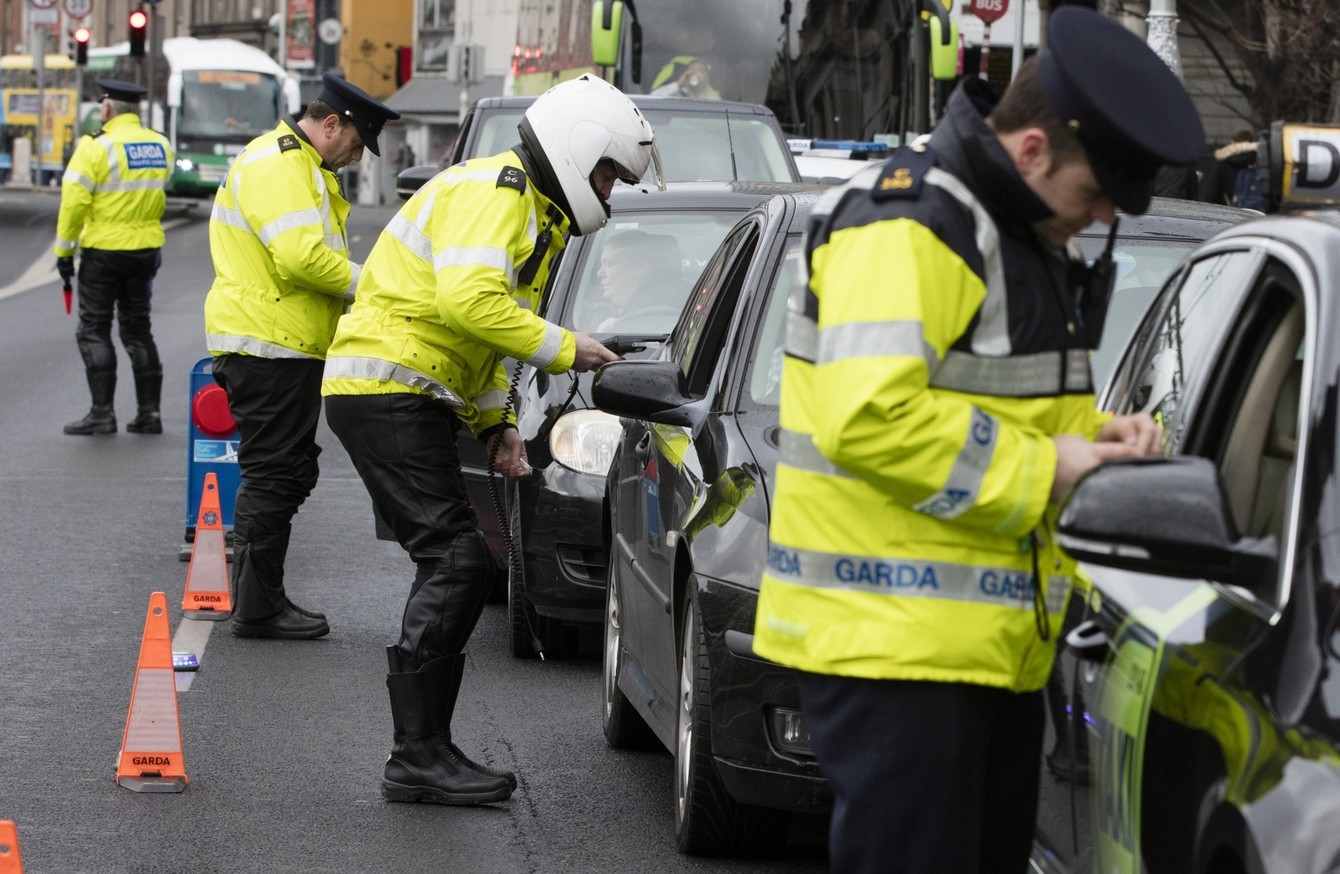 |
| Photo: TheJournal.ie |
If you're caught speeding, the minimum penalty for a Fixed Penalty Notice offence is a £100 fine and either three points on your licence or the opportunity to go on a driver speed awareness course.
In 2017, fines for the most serious speeding offences in England and Wales were increased in a move that means they could potentially cost drivers thousands of pounds.
The changes followed a review of the sentencing guidelines given to magistrates' courts by the Sentencing Council. It ruled that drivers who break the speed limit by a significant margin – such as driving at 41mph or above in a 20mph zone, or more than 101mph on a motorway – should be fined up to 150% of their weekly income. The limit had been 100%.
While the percentage of income changed, the upper limits for fines remained the same. Drivers can be fined up to £2500 if caught speeding on a motorway or up to £1000 on regular roads.
Speeding fines are categorised into three main bands, A, B and C, set out in this table:
| Speed Limit (mph) | Recorded speed (mph) | ||
| Band C | Band B | Band A | |
| 20 | 41 and above | 31 - 41 | 21 - 30 |
| 30 | 51 and above | 41 - 50 | 31 - 40 |
| 40 | 66 and above | 56 - 65 | 41 - 55 |
| 50 | 76 and above | 66 - 75 | 51 - 65 |
| 60 | 91 and above | 81 - 90 | 61- 80 |
| 70 | 101 and above | 91 - 100 | 71 - 90 |
| Points/disqualification | 7 to 56 days disqualification or 6 points | 7 to 28 days disqualification or 4 to 6 points | 3 points |
Before changes in 2017, fines falling under bands B and C used to equal 100% of an offender’s weekly income. This has now increased to 175%, and drivers could still be banned from driving for up to 56 days or receive six points on their licence.
According to GOV.UK, the minimum £100 fine remains. Drivers caught for the first time could be given the opportunity to avoid penalty points on their licence by attending a speed awareness course instead. This is not a guaranteed option, though, as a number of police forces don’t offer the course. The course is also not offered to repeat offenders.
| Starting point | Range | |
| Fine Band A: | 50% of weekly income | 25 – 75% of weekly income |
| Fine Band B: | 100% of weekly income | 75 – 125% of weekly income |
| Fine Band C: | 150% of weekly income | 125 – 175% of weekly income |
The table above shows that most fines for Band A speeding will equate to half your weekly wage. In some cases, such as repeat offending, you may still be required to appear in court for a speeding conviction that’s placed in Band A, depending on the specifics of the case.
Variables include the timing of an offence in relation to any applicable previous convictions, driving conditions at the time of the offence, the population density of the area in which you were speeding, or circumstances where more care was needed e.g. driving near a school or driving a larger vehicle such as an HGV. The same adjustments can also be made for Bands B and C.
Aggravating factors such as the ones mentioned above can push the offence into bands D, E and F, where the fines increase again up to between 200%-700% of your weekly income (but the £1,000 and £2,500 limits still apply).
How much are speeding fines in the UK?
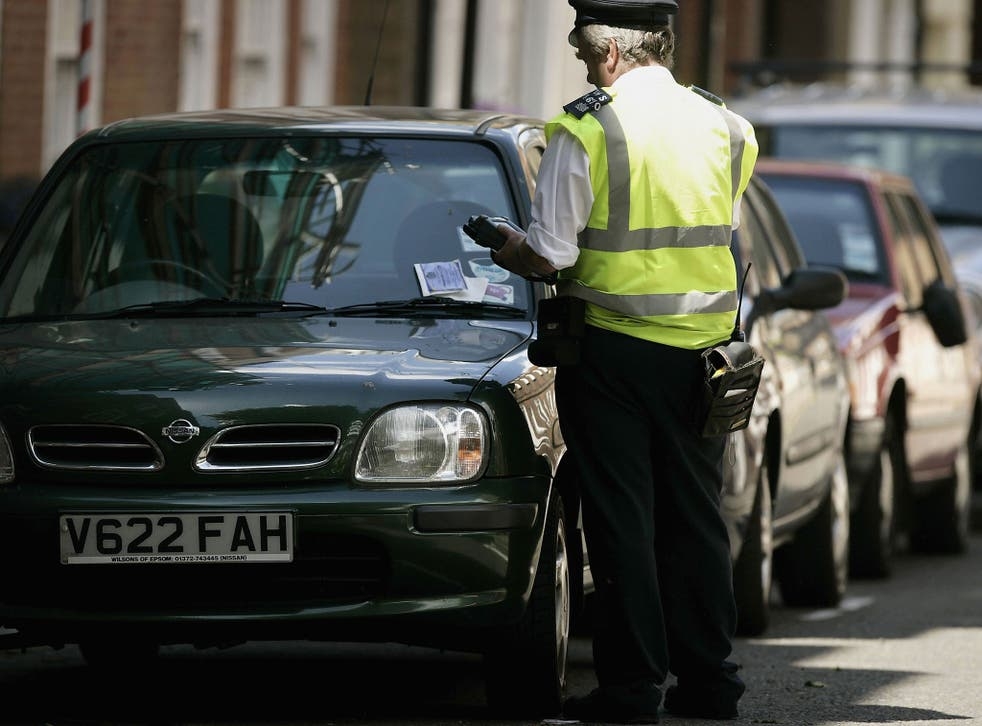 |
| Photo: The Independent UK |
In the UK, drivers who are caught speeding can be fined a minimum of £100. You can also have three penalty points added to your licence - with this amount increasing if your offence is particularly serious - If you receive 12 penalty points or more within a three year period, you could be disqualified from driving.
New drivers will have their licences revoked if they have earned more than six penalty points within a two-year period.
In 2015, the average speeding fine was £188 for drivers caught by traffic patrol officers and speed cameras. Now that fines have risen by 50%, expect the average now to be in the region of £282.
The UK’s average salary in 2015 was £27,600, according to the Office of National Statistics. Using this as a reference, we can find out what you could pay if you earn the average UK wage.
Band A offence example:
Drivers caught travelling at a recorded speed of 36mph in a 30mph zone would be placed in Band A, so you would get three points on your licence.
50% of your weekly wage would mean an initial fine of £265.38.
The final figure could range between £132.69 (25% of your weekly wage) and £398.08 (75% of your weekly wage), depending on the circumstances.
| Fine value | % of weekly earning | |
| Starting point fine: | £265.38 | 50 |
| Maximum fine: | £398.08 | 75 |
| Minimum fine: | £132.69 | 25 |
Band B offence example
69mph in a 50mph zone:
| Fine value | % of weekly earning | |
| Starting point fine: | £530.77 | 100 |
| Maximum fine: | £663.46 | 125 |
| Minimum fine: | £398.08 | 75 |
Band C offence example
105mph in a 70mph zone:
| Fine value | % of weekly earning | |
| Starting point fine: | £796.15 | 150 |
| Maximum fine: | £928.85 | 175 |
| Minimum fine: | £663.46 | 125 |
If your case ends up in court, there are factors that could affect the severity of your sentence.
Factors that can reduce the seriousness include:
- A genuine emergency that led to the offence
- An absence of previous convictions, or of any that are relevant or recent
- Good character or exemplary conduct
Factors that increase the seriousness include:
- Previous convictions
- Towing at the time of the offence
- Carrying passengers or a heavy load
- Poor road or weather conditions
- Driving a larger vehicle such as a HGV
- Committing an offence on licence or during post-sentence supervision
- The location of the offense e.g. near a school or densely populated pedestrian area.
What happens if you get caught by a speed camera?
If you’re caught by a speed camera, you’ll receive a Notice of Intended Prosecution (NIP) as well as a Section 172 notice. You must reply to the police within 28 days, returning the Section 172 notice and telling them who was driving the car.
If you ignore the notice, you may have to go to court. After you’ve sent the Section 172 notice, you’ll receive a Fixed Penalty Notice (FPN) or a court summons.
You can challenge a speeding ticket either by writing a letter to the police informing them of why you believe you shouldn’t be fined for speeding, or by contesting the ticket in court.
What happens if you get stopped by the police for speeding?
The police can also send you to court or issue you with a FPN but, unlike a speed camera, they can also give you a verbal warning, depending on the seriousness of the offence.
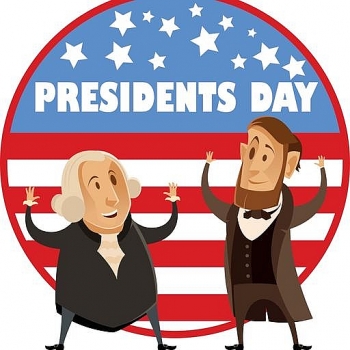 How to Celebrate Presidents' Day: Date, History, Meaning and Quotes How to Celebrate Presidents' Day: Date, History, Meaning and Quotes Washington's Birthday is a federal holiday celebrated on the third Monday of February. At a state level, it may be called President's Day (February 21), ... |
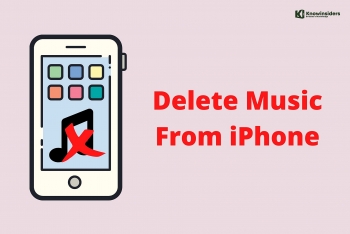 How to Delete All Songs or Music from iPhone with Simple Steps How to Delete All Songs or Music from iPhone with Simple Steps If you need to free some space on your iPhone, deleting music is a good place to start. Check out this article to know how ... |
 How to Celebrate Lunar New Year In The US: Taboos and Superstitions How to Celebrate Lunar New Year In The US: Taboos and Superstitions Lunar New Year is one of the most important Asian holidays of each year. How is Lunar New Year celebrated in the US? |
 How To Celebrate 'Love Your Pet Day': Date, History and Meaning How To Celebrate 'Love Your Pet Day': Date, History and Meaning National Love Your Pet Day is a wonderful excuse for pet owners to show their beloved pets just how much they care. Read on to ... |



















